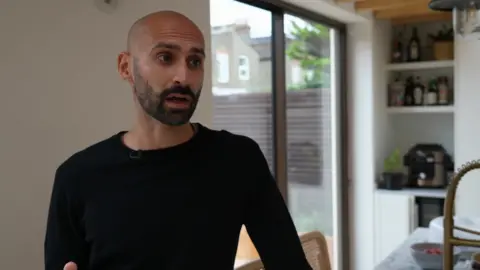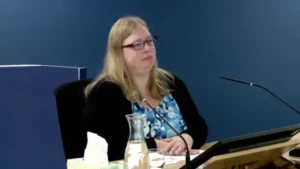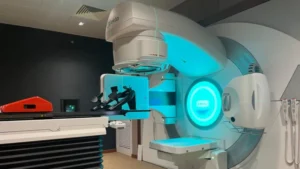MPs to get first vote on assisted dying for nine years
MPs will consider proposals to change the law so some terminally ill people can choose to end their life.

Proposals to give terminally ill people in England and Wales the right to choose to end their life are to be introduced in Parliament this month.
Labour MP Kim Leadbeater is putting forward the bill and said “now is the time” to hold a fresh debate on assisted dying, after MPs rejected a bill on the issue in 2015.
Prime Minister Sir Keir Starmer has previously promised to give Labour MPs a chance to vote with their conscience on the issue and has supported a change in the law himself.
However, Baroness Tanni Grey-Thompson, a former paralympian who is a crossbencher in the House of Lords, said she was against the proposed change.
Leadbeater said her proposals would give eligible adults nearing the end of their lives the right to choose to shorten their deaths if they wish.
The details have not been finalised but the bill is likely to be similar to a proposal in the House of Lords, which would allow terminally ill adults with six months or fewer to live to get medical help to end their own lives.
The bill is expected to be formally introduced on 16 October, with a debate and initial vote likely to take place later this year. It would have to be approved by MPs and peers before it becomes law.
Scotland, Jersey and the Isle of Man are also considering changes to the law.
The subject has gained attention in recent months, after broadcaster Dame Esther Rantzen revealed she had lung cancer and had joined Dignitas, the assisted dying clinic in Switzerland.
On Friday the prime minister said that before the general election he had promised Dame Esther a debate and a free vote on assisted dying.
He said he would stick to this commitment and confirmed the government would remain neutral.
Dame Esther, who has been calling for a change in the law, said she was surprised she may live to see a debate in Parliament about the issue.
She said the law as it stands puts her family “at risk of being accused of killing me” if they helped her end her life in Switzerland.
“All I’m asking for is that we be given the dignity of choice,” Dame Esther told the BBC.
“If I decide that my own life is not worth living, please may I ask for help to die. It’s a choice.”
But Dr Lucy Thomas, a palliative care and public health doctor, said assisted dying was a last resort that courts, rather than doctors, were better placed to judge.
She added that choosing to end your life was not a “straightforward consumer decision”.
Baroness Grey-Thompson told the BBC she was opposed over concerns “about the impact on vulnerable people, on disabled people, coercive control, and the ability of doctors to make a six-month diagnosis”.
Assisted suicide – intentionally helping another person to end their life – is currently banned in England, Wales and Northern Ireland, with a maximum prison sentence of 14 years.
Assisted dying is generally used to describe a situation where someone who is terminally ill seeks medical help to obtain lethal drugs which they administer themselves.
As a backbench MP, Leadbeater would not normally be allotted time for a full debate and vote in Parliament on one of her proposed bills.
However, earlier this year she came first in the private members’ ballot, meaning she will be given some of the limited time available for backbench MPs’ bills.
Speaking to the BBC, the Spen Valley MP said topping the ballot had prompted her to look into the subject of assisted dying “in a lot more detail” and that she believed there was a “real appetite” for MPs to have a debate.
“The current situation isn’t particularly safe and there isn’t actually the choice that I believe people deserve and should have,” she said.
Dr Gordon Macdonald, chief executive of Care Not Killing, a group which opposes changing the law, said news of the forthcoming bill was “clearly disappointing”.
He said: “I would strongly urge the government to focus on fixing our broken palliative care system that sees up to one in four Brits who would benefit from this type of care being unable to access it, rather than discussing again this dangerous and ideological policy.”

Anil Douglas welcomed the debate. His father, who suffered from secondary progressive multiple sclerosis, took his own life the day before his 60th birthday.
He said his father had lost “all bodily dignity” and was in “agonising neurological pain”.
“The current law as it stands is dangerous, and it leads people to take decisions that are lonely, isolating, and incredibly risky, just like my father,” he said.
“Really what the law should do is protect people.”
It is not clear which way the House of Commons will vote when the bill is debated.
The make-up of the Commons has changed dramatically since 2015, when MPs last voted on assisted dying.
That bill – which would have allowed some terminally ill adults to end their lives with medical supervision – was rejected, with 118 MPs voting in favour and 300 voting against the plans.
In that vote, Conservative MPs overwhelmingly rejected the bill – 270 were against while just 27 were in favour.
By contrast Labour MPs were more evenly split – 92 opposed and 73 were in favour. One of those Labour MPs to vote in favour was Sir Keir, now prime minister, but then just a backbencher.
The current deputy prime minister and foreign secretary, Angela Rayner and David Lammy, voted against.
On Friday, Energy Secretary Ed Miliband told BBC Breakfast he would vote in favour of the assisted dying bill and described the current law as “cruel”.
Health Secretary Wes Streeting said he was “conflicted” on assisted dying earlier this year. The BBC has been told he thinks it is right to have a debate now but he is said to still have concerns.
The government has confirmed it will remain neutral on the bill. In a letter to ministers, head of the civil service Simon Case said they would be able to vote “however they wish”.
“Though ministers need not resile from previously stated views when directly asked about them, they should exercise discretion and should not take part in the public debate,” he said.








